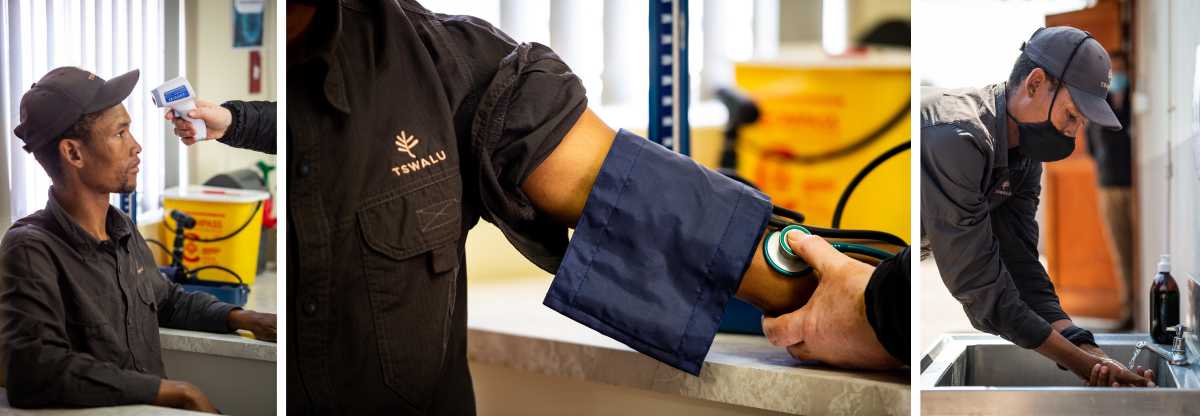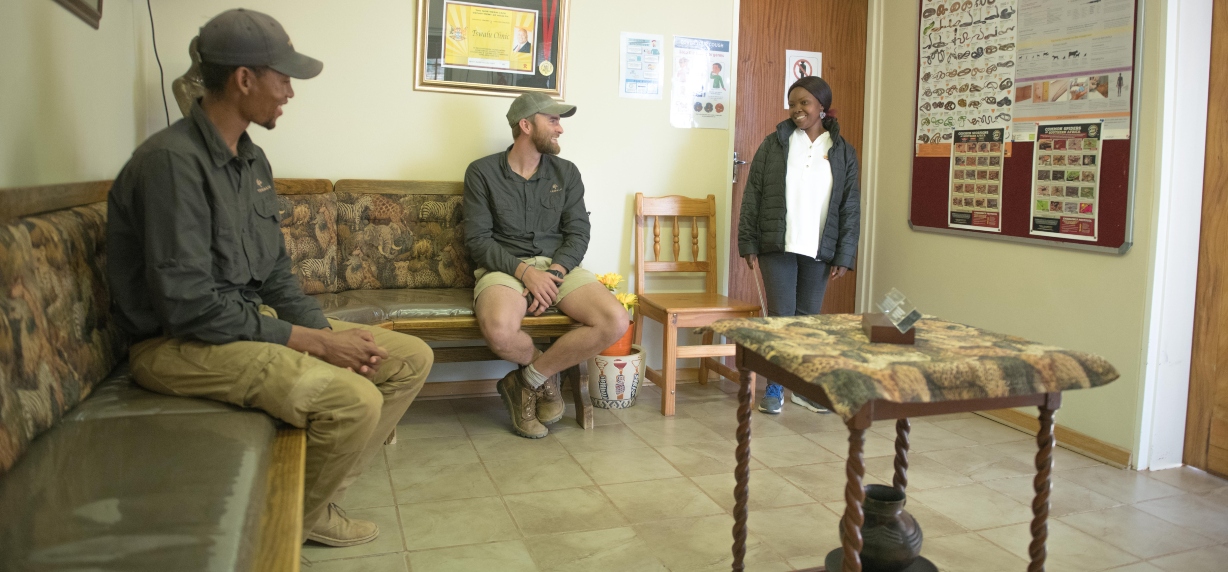PRIMARY HEALTH CARE FOR ALL
Tswalu’s health care centre provides free primary health care services not only to all staff and their families on the reserve but to anyone in need in the remote, rural communities surrounding the property. The health care centre has grown from humble beginnings 20 years ago, in the decommissioned Dedeben Police Station on Tswalu’s southern border, to the exceptionally well-equipped, present-day facility in Witberg – the community heart of the reserve.
This project would not have been possible without the vision and support of Dr Ludwig Föcking. The idea for a fully equipped health care centre was developed in partnership with Tswalu by Dr Föcking, a vascular specialist from Germany, who first visited the reserve as a guest of the late Stephen Boler in the 1990s. Concerned by the lack of public health care facilities in the Northern Cape’s rural areas, he committed to setting up a primary health care centre on Tswalu that would serve the greater community. The doctor donated all the equipment – everything from hospital beds and surgical equipment to ECG and sonar machines – and has continued to upgrade the facility and provide the resident nurse with training and on-going support. Tswalu provides the buildings, transport and logistics needed to operate the centre, and also pays the salaries and provides accommodation for staff. The provincial government provides generic medicines offered in state-run clinics, such as contraceptives, anti-retrovirals, hypertension medication and antibiotics.

Nursing sister Madelein Swarts and assistant Mietje Dolf
Tswalu’s gates are open to anyone in the area who needs to see nursing sister Madelein Swarts. Between 800 and 900 patients visit the centre every month, all free of charge.
Services include trauma stabilisation and care, ECGs, a range of blood tests, and family planning, pregnancy and childcare support (including sonar scans). Programmes include HIV/AIDS awareness, malnutrition education and support, and tuberculosis (TB) support. Apart from the community health programmes, regular eye and dental clinics are also facilitated. The centre has a sophisticated range of diagnostic tools for specialised eye care.
In addition to sister Madelein, there is a general practitioner, Dr Bok Jansen, who lives on site and is available for consultations one morning a week. It is reassuring for everyone to know that there is a doctor on call for after-hours emergencies.
Over the years, through his circle of influence in Germany, Dr Föcking has arranged for dentists, opthalmologists and other specialists to visit Tswalu and provide pro bono medical care to those in need. In many instances, eyesight has been restored, and the sponsorship of prescription glasses has made it possible for both adults and children to learn to read.

Guests staying at The Motse or Tarkuni are welcome to visit the centre to see the wonderful work being done and to find out about sponsorship opportunities. Future plans include raising funds for the provision of transport for those who cannot currently access the centre and its services. Pro bono work by medical specialists, particularly dentists, ophthalmologists and dermatologists, is often a meaningful aspect of a safari for guests who have the qualifications, skills and experience to offer.


